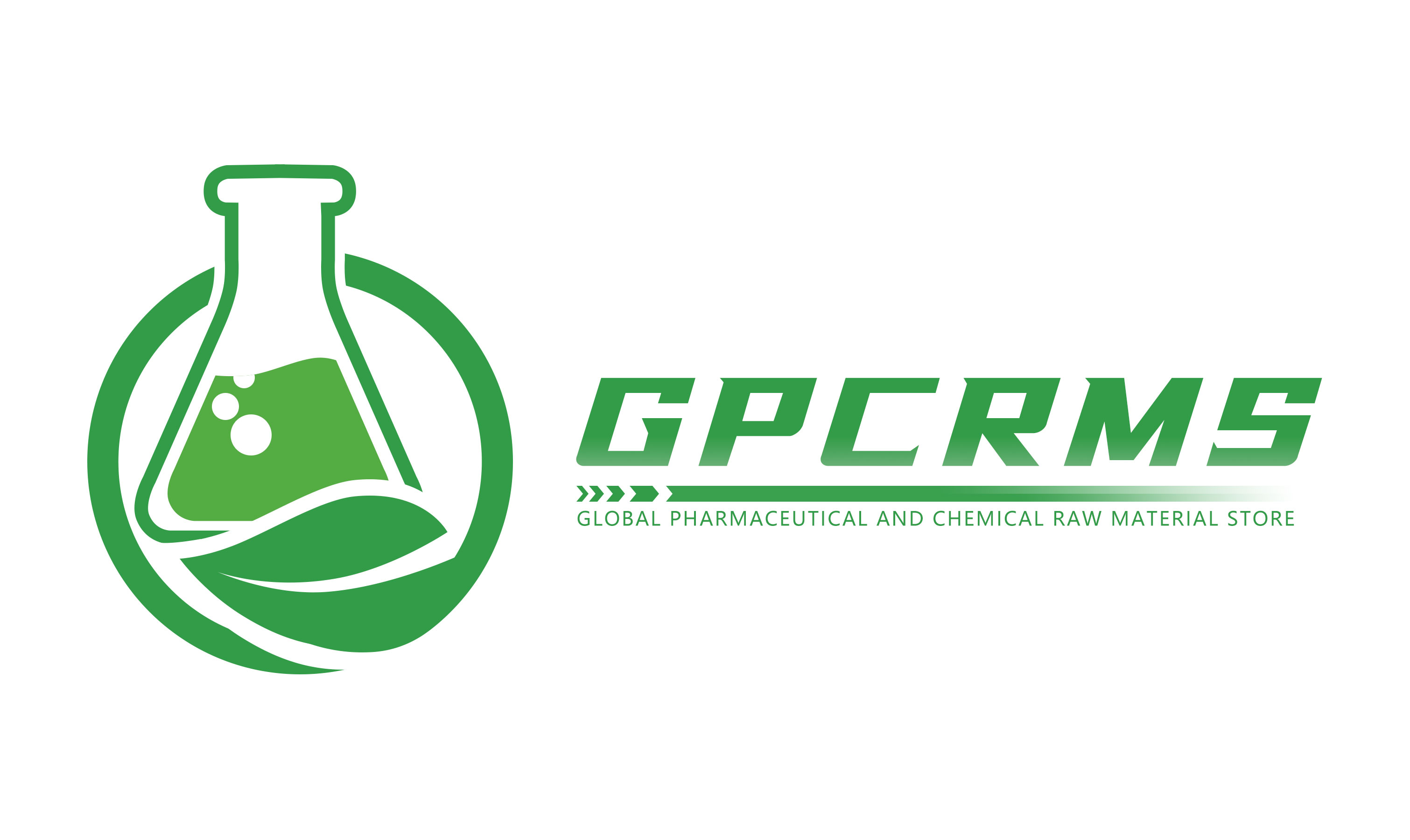May I use water to make RAD140 solution? will it dissolve?
RAD140 (Testolone) is a popular selective androgen receptor modulator (SARM) that has received attention for its potential effects on muscle gain and fat loss in bodybuilding and exercise. However, in actual use, its solubility directly affects the formulation and bioavailability of the preparation. Today, we will test the solubility of 1g RAD140 in water and record the experimental process and results in detail.
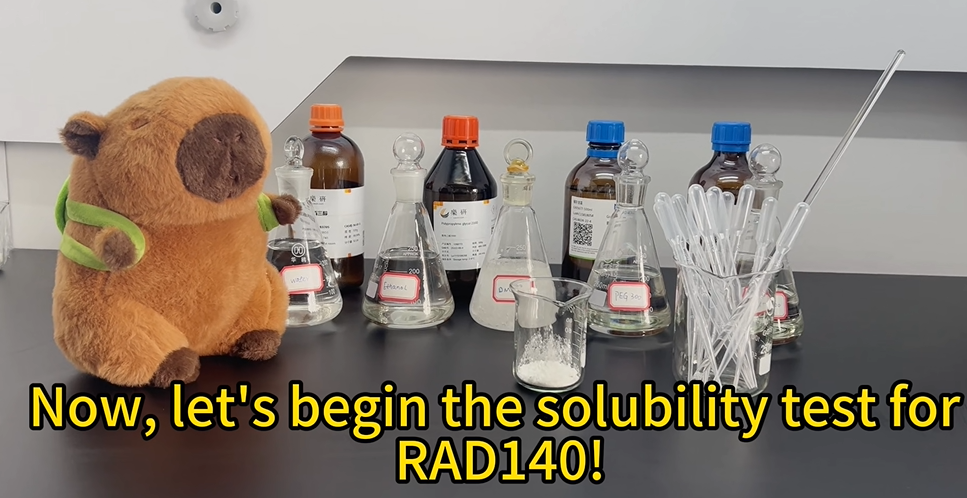
Before we start the experiment, let's talk about some of the tools that we'll use in this experiment that we haven't used before.
1.Disposable pipettes for precise measurement of solvents.
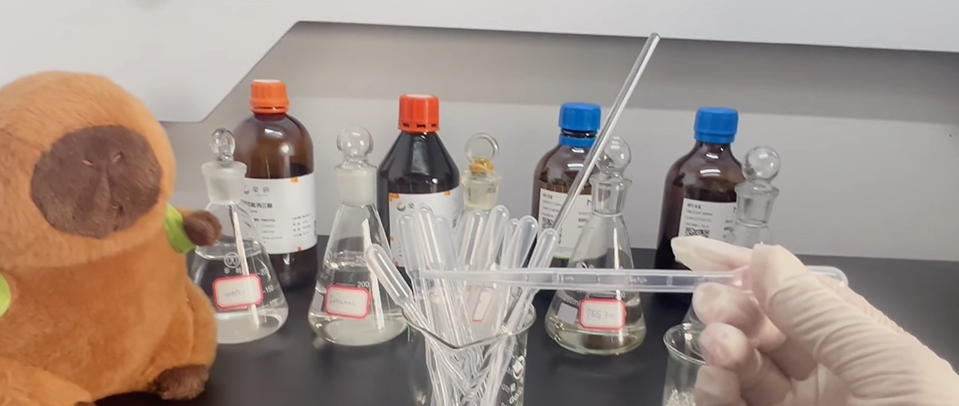
2.Glass stirring rods to mix and speed up dissolution.
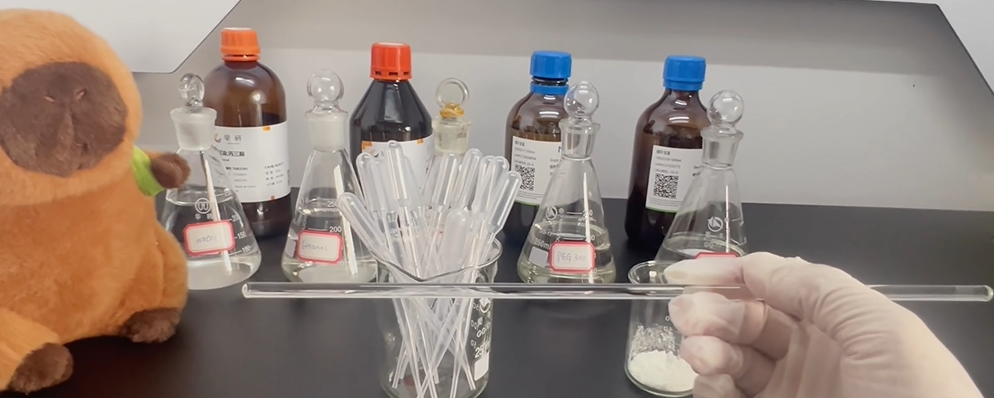
3.Ultrasonic cleaner. This should be quite familiar to you, we use it many times to heat and use its ultrasonic vibrations to speed up the dissolution process.
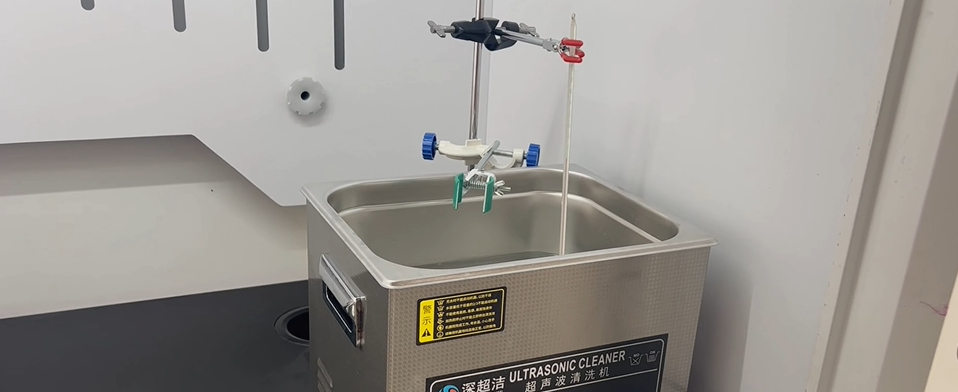
Next, we will follow the steps to test the solubility of RAD140 raw powder. The first solvent used is water, pure water.
Because in the previous MK677 raw powder solubility test, we added the solvent from 2ml. Some friends suggested that we start from 1ml to add the solvent, and only increase 1ml each time, in order to increase the accuracy of the experimental data. Thank you for your advice. In the experiment with RAD140, we will start with 1ml and increase the solvent 1ml at a time.

Experimental procedure and observation
Initial test: Dissolve 1ml of water
Place 1g RAD140 powder in a container, add 1ml water and stir thoroughly for about 2 minutes.
Observation: The 1ml water is fully absorbed by RAD140 powder, but the powder hasn't dissolved yet. It looks like 1ml of water is too little, so we need to keep adding the solvent.
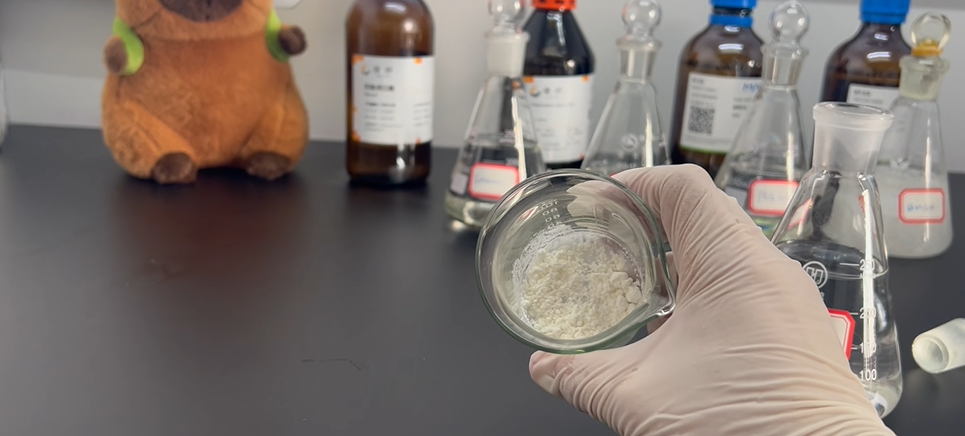
Continue testing: Increase to 2ml water
Let's add another 1ml of water, so now we have 2ml of water. Shake the beaker a little bit, and we'll see how it dissolves.
Observations: The RAD140 powder still hasn't dissolved, but the powder is becoming thicker and stickier.
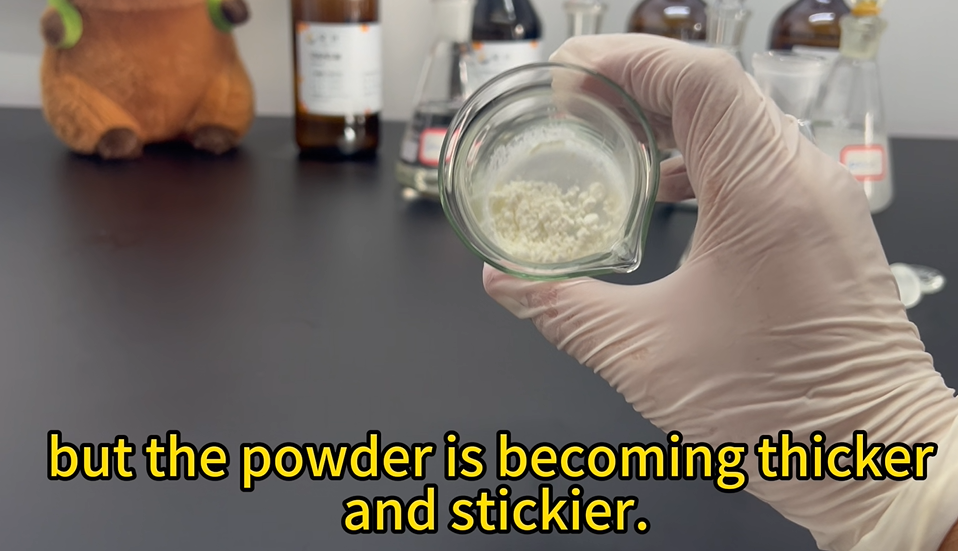
We will continue to keep adding only 1ml at a time and stir the sample after each addition of the solvent to help it dissolve.
Continue testing: Increase to 3ml water
Now that the water has been added to 3ml, the sample still looks dry and powdery. Next increase to 4ml.
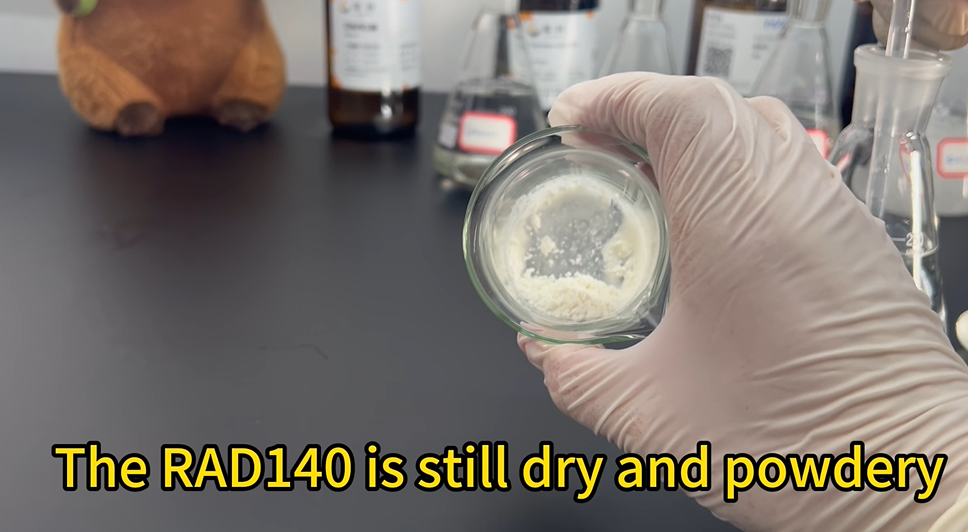
When we add 4ml of water, we find that some liquid clings to the sides of the beaker,
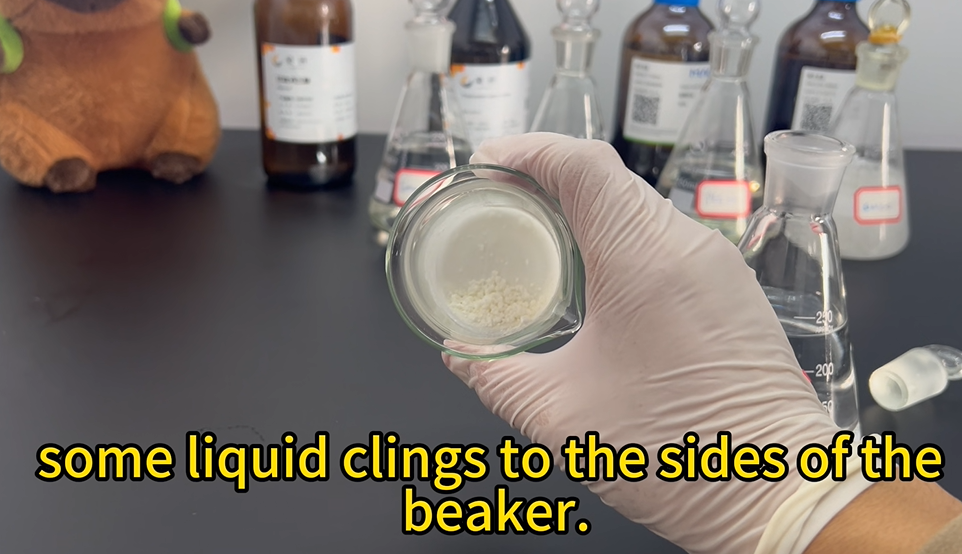
This was followed by 5ml, with no significant change.
6ml, once stirred, the mixture turns milky white and thick. It's clear the RAD140 powder hasn't dissolved. The mixture appears to be suspended.
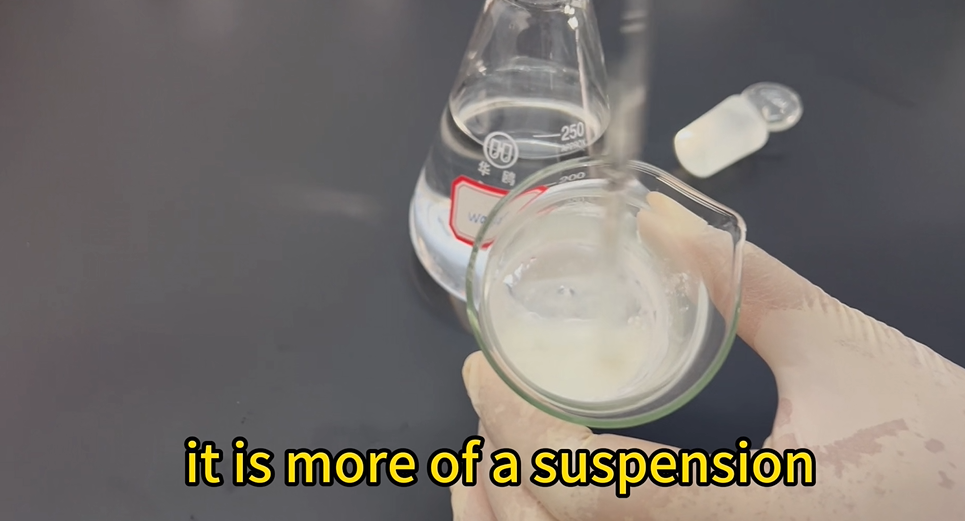
As of now, the solubility of RAD140 powder is basically clear. We need to stop adding solvent water from 1ml at a time. Ok, next we will add water directly to increase to 10ml. That is, add another 4ml of water.
Extended test: Increase to 10ml water
Now the total amount of water reaches 10ml and stir well for about 5 minutes.
Observations: The RAD140 solution remains a milky suspension. Stirring again the mixture is still a milky, cloudy liquid. This state indicates that rad140 is not dissolved.
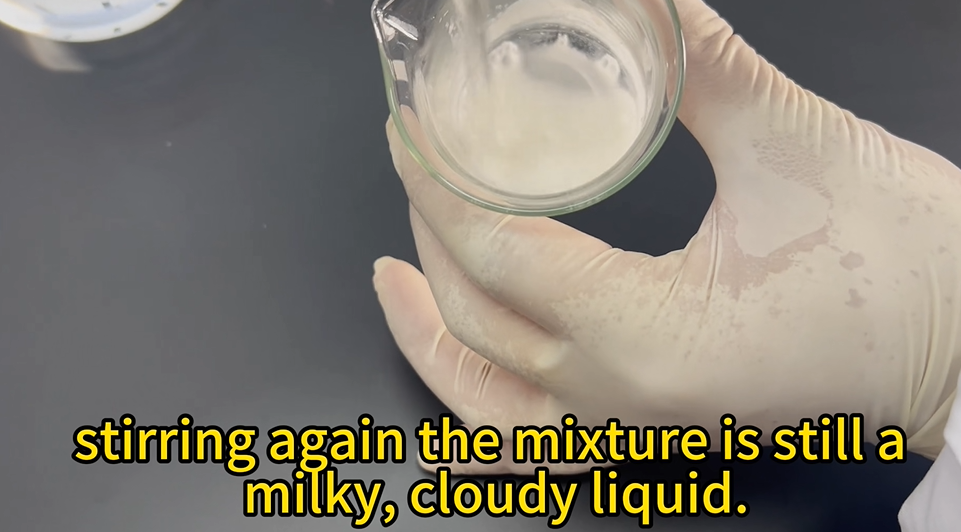
Final test: Reach 50ml of water
Finally, we increased the amount of water to 50ml, stirred it again and let it sit for 3 minutes before observing.
Observation: After full stirring and standing, RAD140 powder was found to sink to the bottom of the beaker, and a small part of it was suspended in water, showing obvious stratification. This phenomenon indicates that RAD140 powder is insoluble in water.
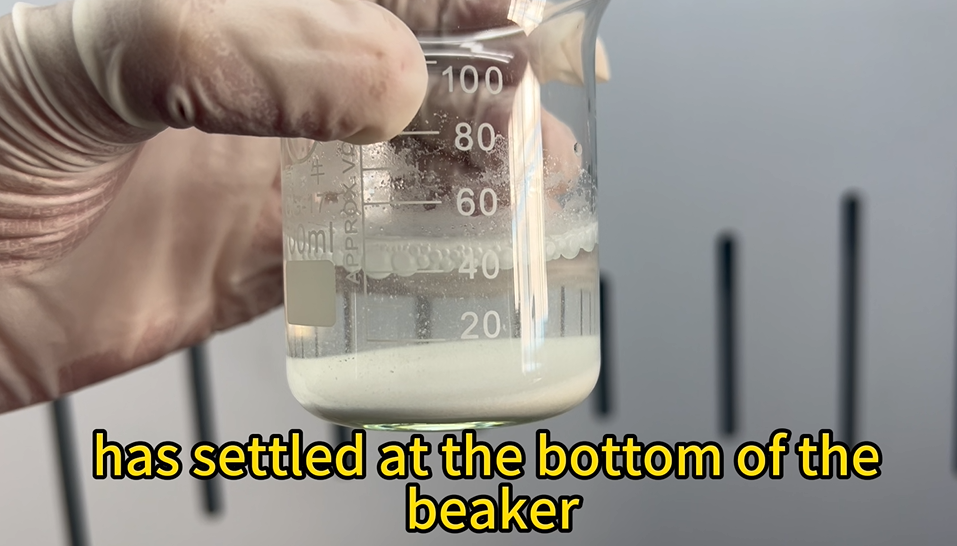
Experimental conclusion
Through this experiment, the following conclusions can be drawn:
1. Water solubility of RAD140: The solubility of RAD140 in water is extremely low, and no significant signs of dissolution appear even when the amount of water is gradually increased to 50ml.
2. Powder behavior: The performance of RAD140 in water is mainly suspended or deposited, without the characteristics of mixed dissolution.
3. Solubility recommendations: Since water does not dissolve RAD140 effectively, it is recommended that other solvents (such as DMSO or PEG-class solvents) be selected in the formulation to better meet the dissolution needs.
Experimental summary
This test confirmed that RAD140 has almost zero solubility in water, indicating that water is not a suitable solvent choice. If a liquid formulation based on RAD140 is required, other polar or non-polar solvents should be preferred.
We hope that the experimental data will be helpful for you to understand the solubility of RAD140! If you are interested in the solubility test of other solvents, or have other questions, please leave a message! See you next time!
